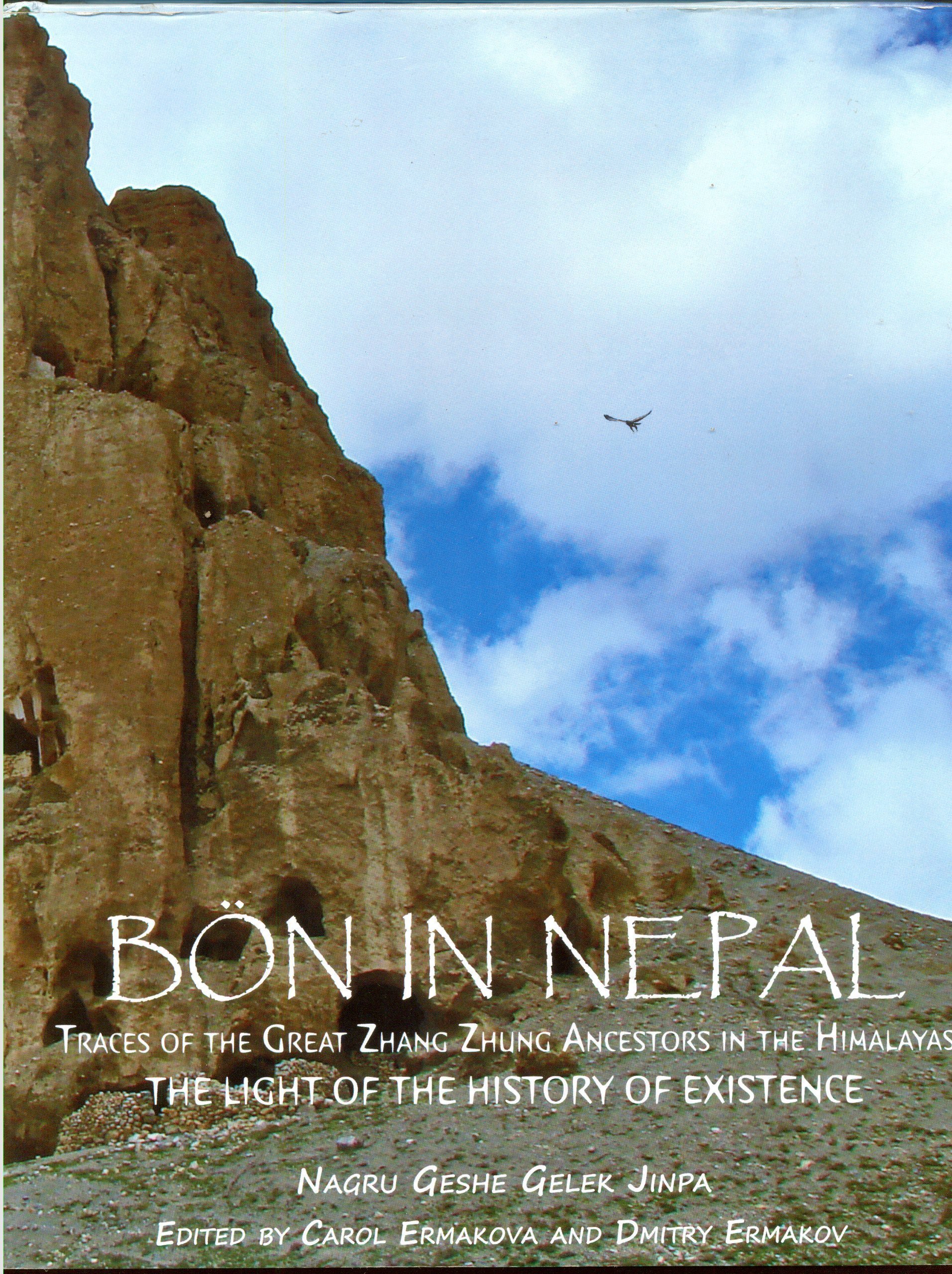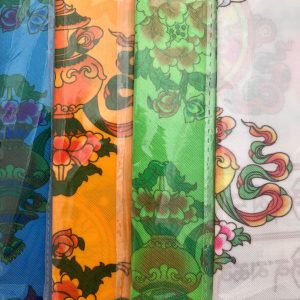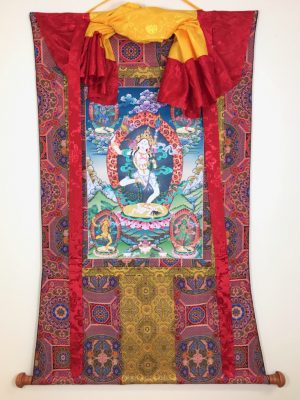Descrição
For many millennia, Yungdrung Bön has been practised in the remote mountainous regions of Nepal which once formed part of the ancient Zhang Zhung empire. Although the tradition’s fate fluctuated with the changing political tides, many aspects of this rich religious culture still survive today.
“Bön in Nepal” is the fruit of one Bönpo monk’s expeditions into these areas to uncover and document living traces of Zhang Zhung’s culture and religion. Illustrated with over 200 magnificent full colour photographs, this book opens a window onto the lives of Bönpos in Nepal today, gracefully combining Nagru Geshe Gelek Jinpa’s personal diary with his meticulous research to provide the reader with a moving yet accurate account.
By matching scriptural texts and historical documents with family histories and local folklore, Geshe Gelek is able to pinpoint several important sacred sites previously lost to us, and through “Bön in Nepal” we, too, can share his excitement as he discovers, for instance, the mountain hermitage of Zhang Zhung Nyengyud dzogchen lineage master Ronggom Togme Zhigpo, or the ruins of Bönkor monastery.
This book also contains a wealth of information on monasteries, ngagpa centres, family shrines, lineages and rituals regularly performed today in the Bönpo enclaves. “Bön in Nepal” is sure to become a favourite among lovers of Nepal’s rich cultural fabric, as well as among those interested in the origins of Tibetan culture and religion and the historical geography of ancient Zhang Zhung and Yungdrung Bön.
“The present book, meticulously and sensitively translated into English by Carol Ermakova and Dmitry Ermakov, offers a highly readable account of Gelek’s journey – or rather, series of journeys – to the main Bön locations of Central and Western Nepal. The lively narrative leads the reader through the gorges and passes of some of the world’s most awe-inspiring landscapes, acutely conveying the challenges of travelling in this unforgiving terrain. Our constant guide on these long marches, the author shares with us his sadness at instances of religious decline or sectarian conflict, his joys at small acts of kindness, and his elation at a historical discovery or signs of vitality of the Bön religion.”
— From the Foreword by Prof. Charles Ramble
Author:
Nagru Geshe Gelek Jinpa was born into a farming family in East Tibet, in 1967 and took monastic vows at the age of nineteen after meeting Yongdzin Lopon Tenzin Namdak Rinpoche in Kham in 1986. He then began his monastic studies in Ritro Monastery, starting with the Preliminary Practices and going on to receive teachings on dzogchen and many other aspects of the Bon tradition. He completed several personal retreats, including a dark retreat and two Tummo retreats of 100 days each, He also practised Trekcho and Thogal. During his time at Ritro Monastery, Geshe Gelek received most of Shardza Rinpoche’s dzogchen teachings from Bonying Rangdrol Rinpoche. He received the introduction to dzogchen from his root master, Ritro Lama Lhundrub Gyaltsen. Geshe Gelek left Tibet in 1992 to continue his studies, firstly in Menri Monastery, Dolanji, then in Triten Norbutse, Kathmandu, where he received dzogchen teachings from his root lama Yongdzin Lopon Tenzin Namdak Rinpoche. He obtained the Geshe degree in 2001 and has since continued his research into the ancient kingdom of Zhang Zhung which once encompassed much of the Tibetan plateau and beyond. Author of sacred Landscape and Pilgrimage in Tibet: In search of the lost Kingdom he has also produced several documentary films, including In Search of Zhang Ghung and Hidden Treasures of Mustang as well as numerous publications in Tibetan. He has been teaching tirelessly both in Triten Norbutse monastery and in the West for many years.



